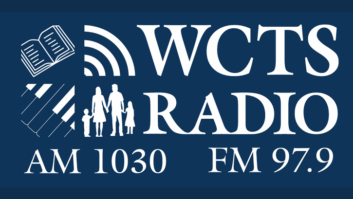Some of the Federal Communications Commission’s more arcanely worded documents are reminiscent of that Dr. Seuss book, “Did I Ever Tell You How Lucky Your Are?”, wherein a bee watcher is watched by a watcher, who in turn gets watched by a watch-watcher and a watch-watch-watcher, and so on.
So it went for a pair of broadcast licensees who traded amendments, curative amendments and supplements to the curative amendment as they sought a ruling from the Media Bureau about a new construction permit for a new FM translator station in New Jersey.
In 2018 Clear Communications filed an application to build a new cross-service FM translator on Channel 293 in Vineland, N.J. Soon after a petition to deny was filed by the licensee Press Communications, who said the translator would cause interference to listeners of its co-channel station WTHJ(FM) in Bass River Township, N.J.
[Read: LPFM Station Allowed to Resume Operations]
In September 2019, the bureau concluded that Press had adequately proven its claims of predicted interference to WTHJ listeners. The Media Bureau granted Press’ petition to deny and dismissed Clear’s construction application.
Clear then filed a petition for reconsideration and reinstatement — specifically a nunc pro tunc opposition (Latin for “now for then”) that is used to retroactively correct an earlier ruling. Clear also submitted a minor curative amendment to the application that would modify the translator’s directional antenna pattern to eliminate predicted interference to Press’ FM station. Clear urged the Media Bureau to grant its reconsideration and reinstate the application, arguing that a reconsideration was justified because the bureau had failed to follow its own notification procedures that were revised in a 2019 order clarifying the FCC’s FM translator interference process.
Specifically, Clear said it had been waiting for a letter from the commission saying that the interference claims from Press were properly submitted and that a deadline had been set by which Clear had to resolve any complaints.
More back and forth began from there. Press argued that the nunc pro tunc policy did not apply and even with some curative amendments that Clear made, the application should still be deemed unacceptable due to predicted interference to WTHJ listeners. Clear disagreed, asserting that the nunc pro tunc policy applied and that nothing in the new FM translator interference order suggested otherwise.
Press then alleged that listeners within WTHJ’s 45 dBu contour would still experience interference from the translator, even with the curative amendment changes. Plus, Clear’s requests should be denied, Press said, because the filing of the amendment is unacceptable under the commission’s clarified translator rules.
 In response, Clear filed a supplement and amendment document, arguing that it should be allowed to make an additional curative amendment to the first amendment because Press submitted new evidence of predicted interference to additional listeners. Clear was not aware of those listeners when Clear redesigned its proposal to protect the previously identified listeners, the licensee said. And the amendment to the curative amendment should be permitted under the nunc pro tunc policy because the petition remains pending.
In response, Clear filed a supplement and amendment document, arguing that it should be allowed to make an additional curative amendment to the first amendment because Press submitted new evidence of predicted interference to additional listeners. Clear was not aware of those listeners when Clear redesigned its proposal to protect the previously identified listeners, the licensee said. And the amendment to the curative amendment should be permitted under the nunc pro tunc policy because the petition remains pending.
Despite the wordiness of some language (and Dr. Seuss watch-watcher references aside), FCC procedural rules are clear in several areas. Petitions for reconsideration and any supplements are required to be filed within 30 days of public notice of the actions taken, a timeline that Clear met.
However, said Press, the second supplement itself was filed after the 30-day window had passed. But Clear retorted that the commission should accept this late-filed supplement because it responds to new evidence submitted by Press itself (even though that new evidence was filed after the 30-day deadline).
And the Media Bureau agreed. When it came to more substantive issues, another thing is clear about Clear: the commission’s nunc pro tunc policy does apply here, the bureau said, and it can accept Clear’s amendment to the curative amendment that accompanied the supplement. That’s because Clear did file its reconsideration request within 30 days and — given the limited nature of the cross-service FM translator filing window — denying this reconsideration request would preclude Clear from an opportunity to obtain a fill-in AM translator, the bureau said.
Even though the bureau acknowledged that there are previous commission decisions that suggest an applicant may file only one curative amendment (here, Clear submitted two) that rule doesn’t apply here. In this case, the bureau only technically dismissed the application once back in September 2020. It was only after Press submitted new information about potential interference — after the 30-day deadline had passed — which thereby rendered Clear’s first curative amendment defective. And having determined that the bureau should accept the amendment to the curative amendment, the bureau said that the proposed facilities and amended application are acceptable for filing.
After the twists and turns, the bureau moved to accept the amendment to the curative amendment, which revised the antenna contour to be directional in nature and also granted a construction permit on Channel 225 (instead of the original Channel 293 to address interference issues).
In the end, the Media Bureau granted the amended the application to Clear for the new FM translator. No bee watchers needed after all.







